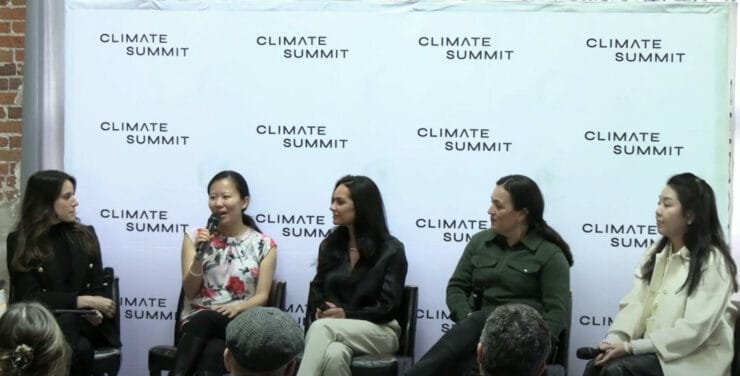During a panel discussion led by Google Cloud’s Anella Bokhari at ETHDenver’s Climate Summit, Chainlink Labs’ Chief Ecosystem Growth Officer, Adelyn Zhou, joined Art Republic’s Jessica Santiago, Samsung Next’s Joan Kim, and Celo Foundation’s Xochitl Cazador to explore why today might be the best time to build the future of web3.
From a funding perspective, Zhou said today’s climate can be advantageous because it selects for the most groundbreaking and innovative projects.
“I work with a lot of founders who are going through the fundraising process right now and, in general, I would say there is still funding for the best projects out there, and those best rounds are still very, very competitive,” she explained.
Considering “history always repeats,” Kim highlighted enduring web2 companies that raised seed rounds after the 2008 financial crisis and predicted a similar path for web3.
“I think it’s actually a great time to be able to focus on the real builders who are building for the long term,” she said, recalling a billboard she saw on her way to the conference that read “Bear Build Market.”
“That is very true,” Zhou said. “I think there’s a lot less hype and so you can actually do stuff because you’re not going from party to party.”
Cazador agreed, explaining that real-world use cases don’t change. Instead, the focus shifts toward developing more nuanced metrics that measure success beyond TVL, accounting for positive trends in user access and environmental impact.
Imagining the future of web3 five years from now, the panelists’ shared goal is to put web3 technology into the hands of as many users as possible by maximizing trust-minimization and abstracting away complexity.
Zhou emphasized how dramatically web3 could advance in such a short period of time through Chainlink’s decentralized infrastructure. “When I first came into this space five years ago, there was no DeFi, there were no NFTs, there was none of this,” she said.
“I’m just fascinated to see us doing this for other industries, whether it is insurance or supply chains, or healthcare, or AI – it just becomes a part of web3 or web3 becomes a part of it, so that when we have conferences, it doesn’t have to be a web3 conference anymore; it’s like web3 is just embedded and part of it all.”
Bokhari agreed. “You’re not going to have an internet conference after so many x years; it just becomes part of the DNA of any ecosystem and of any industry,” she said. “Yes, this panel is about building in a bear market, but look how many people are here standing in this room. There’s so much great work that can be done right now.”
Watch the full panel discussion at ETHDenver’s Climate Summit.


